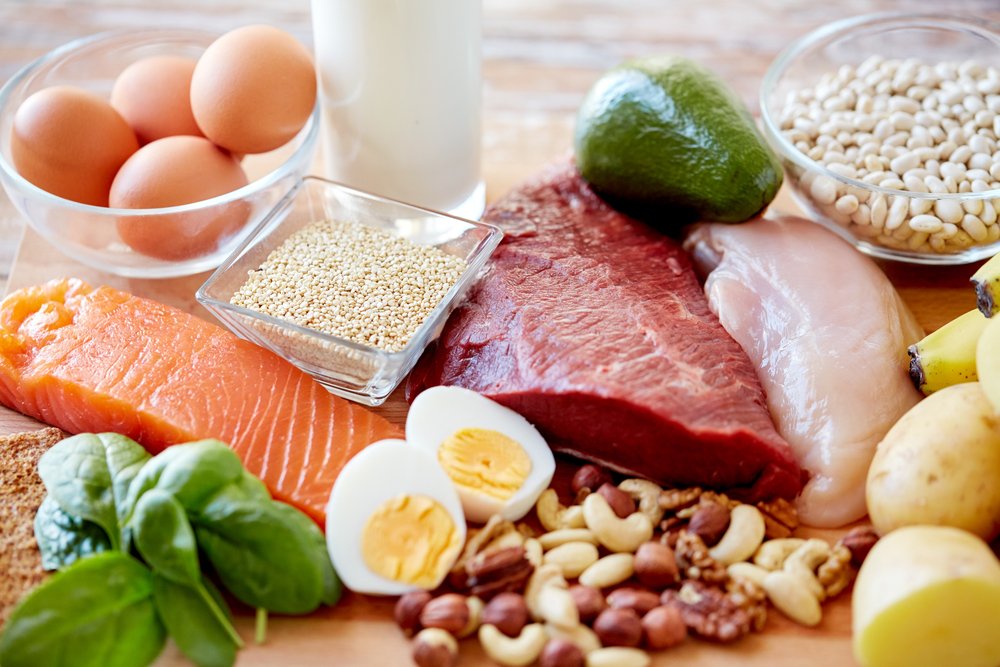Individuals And Diabetics On High-Protein Diets Are At High Risk Of Chronic Kidney Disease
Source: Thailand Medical News Nov 24, 2019 6 years, 2 months, 1 week, 5 days, 9 hours, 26 minutes ago
Contrary to a normal notion that a
high-protein diet is healthy, keeps one fit and help you to lose fat and retain lean muscle mass, it can also quickly lead you to developing
chronic kidney disease. Avoiding carbohydrates and substituting them with proteins has become a leading dogma for all those who care for their looks and health.

Researchers from the European Renal Nutrition Working Group, Professor Dr Kamyar Kalantar-Zadeh, Professor Dr Holly M Kramer and Professor Dr Denis Fouque now consider it necessary to question this belief and to put a tough warning label on our modern eating habits.
Prof Dr Fouque, past-chair of the European Renal Nutrition Working Group and author of the new study told
Thailand Medical News ,"We may save calories, but we may also risk the health of our kidneys. The promise of saving calories and losing weight is why a high-protein diet is very often recommended to people who suffer from diabetes or who are obese. But the crux of the matter is that these groups of people are especially vulnerable to the kidney-harming effects of a
high protein intake. A
high-protein diet induces glomerular hyperfiltration, which, according to our current state of knowledge, may boost a pre-existing low-grade
chronic kidney disease, which, by the way, is often prevalent in people with
diabetes. It might even increase the risk of de novo kidney diseases. To put it in a nutshell: To recommend a
high-protein diet to an overweight
diabetes patient may indeed result in loss of weight, but also in a severe loss of kidney function. We want one, but we also get the other."
Due to the rising number of people affected by type 2
diabetes, and the fact that at least 30% of patients with
diabetes suffer from an underlying
chronic kidney disease, the experts believe it is high time that the
diabetes population and the general public are warned.
Prof Dr Fouque added, "By advising people especially those with a high risk for
chronic kidney disease, namely patients with
diabetes, obese people, people with a solitary kidney and probably even elderly people to eat a protein-rich diet, we are ringing the death bell for their kidney health and bringing them a big step closer to needing renal replacement therapy."
This represents the main message of the editorial by the three authors mentioned above, which has been published along with two new studies on that topic in the current issue of
NDT. The analysis of a Dutch cohort showed a strictly linear association between daily protein intake and decline in kidney function. The higher the intake, the faster the decline. The result of an epidemiological study conducted in South Korea points to the same direction: Persons with the highest protein intake had a 1.3 higher risk of faster GFR loss. The finding itself is not new. Many previous studies have shown that a high-protein diet may harm kidney
function, and this is why patients with a known early-stage chronic kidney disease are recommended a low-protein diet by their nephrologists. As long as it is unclear whether it makes any difference if the proteins are animal- or plant-based, the recommendation is to abstain in general from a high protein intake.
The main problem, as Fouque and his colleagues point out, the problem are the people who have a mild
chronic kidney disease which they are totally unaware of and who follow the trend of eating a protein-rich diet because they believe it is healthy. "These people do not know that they are taking the fast lane to irreversible kidney failure." Prof Fouque and his ERA-EDTA colleagues want to start an information campaign and raise awareness for this problem among the general population. "It is essential that people know there is another side to
high-protein diets, and that incipient kidney disease should always be excluded before one changes one eating habits and adopts a
high-protein diet.”
High protein diets do not just affect
diabetics, even ordinary healthy individuals are at high risk of developing c
hronic kidney disease from such a dietary intake.
Reference: Kamyar Kalantar-Zadeh et al, High-protein diet is bad for kidney health: unleashing the taboo, Nephrology Dialysis Transplantation (2019). DOI: 10.1093/ndt/gfz216
